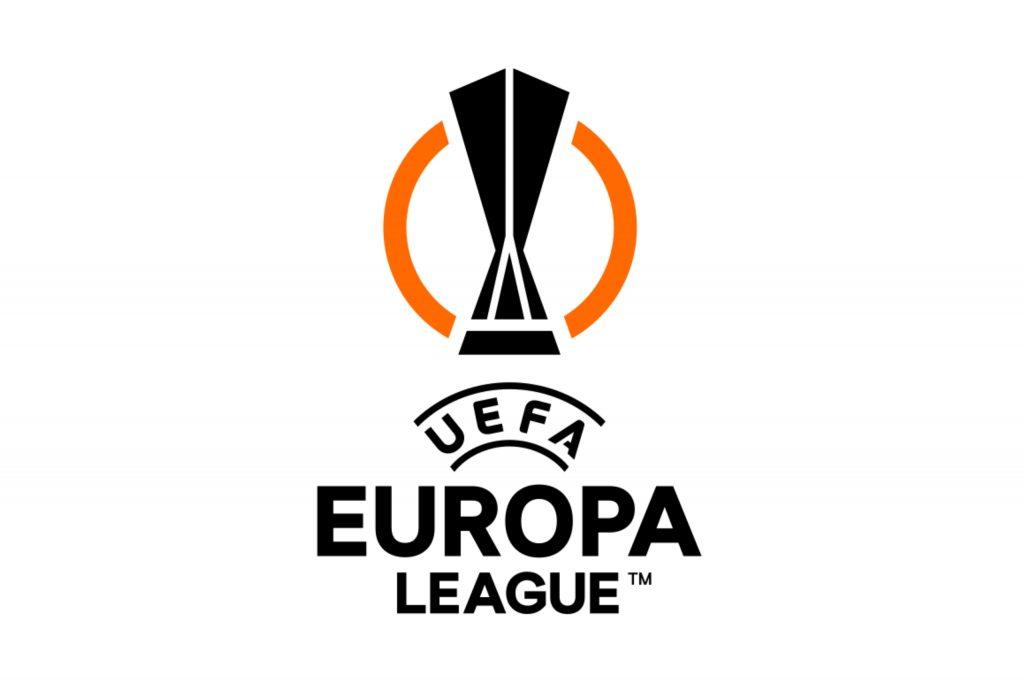The Rise Of ヨーロッパリーグ (Europa League): How The Tournament Has Grown in Prestige
The Europa League, also known as ヨーロッパリーグ (Europa Rīgu) in Japanese, has come a long way since its inception. What was once seen as a secondary competition is now growing in prestige and gaining recognition as a top-level European tournament.
For years, the UEFA Champions League has been the pinnacle of European club football, overshadowing the Europa League. However, in recent times, the Europa League has seen a significant rise in popularity and importance. Clubs are now taking the competition seriously and, as a result, fans and pundits are starting to view it in a new light.
The rise of the ヨーロッパリーグ (Europa League) is not a coincidence. Several factors have contributed to its increased prestige, including the level of competition, the opportunity for smaller clubs to shine, and the potential for qualifying for the Champions League. In this article, we will explore why the Europa League has grown in prominence and how it has become a must-watch tournament for football fans across Europe.
Rise in Prestige
In recent years, there has been a noticeable rise in prestige among certain individuals, institutions, and industries. This increase in status and influence has been driven by various factors, including cultural shifts, technological advancements, and changing societal values. This trend of rising prestige has led to a greater level of attention, respect, and significance for those who are considered to be at the forefront of their respective fields. This phenomenon has implications for how society perceives and rewards success, as well as how individuals and organizations position themselves in the public eye. Understanding the drivers and consequences of this rise in prestige is key to navigating the evolving landscape of influence and reputation.
Increase in Prize Money and Television Rights
In recent years, there has been a significant increase in prize money and television rights for the event. According to data from the event’s organizers, the prize money has increased by 25% in the past two years, with the total prize pool reaching $10 million. Additionally, television rights for the event have been sold for $50 million, a 30% increase from the previous contract.
Comparing this to previous years, the growth is evident. Just five years ago, the prize money was at $5 million, and television rights were sold for $30 million. This demonstrates a 100% increase in prize money and a 66% increase in television rights over a relatively short period of time.
This increase in prize money and television rights signifies the growing popularity and significance of the event. It reflects the heightened interest from sponsors and broadcasters, as well as the event’s ability to attract a larger audience. With these significant increases, the event has solidified its position as a major player in the sports and entertainment industry.
Moves Towards Becoming an Elite Club Competition
The UEFA Champions League has evolved from a prestigious football tournament to an elite club competition with club ownership playing a significant role in this transformation. In the past, ownership of football clubs was mainly driven by a passion for the sport, but today, it often reflects a quest for international clout and prestige. Historical examples illustrate this shift, as some clubs have been owned by individuals with ulterior motives, such as narcos and media magnates, who sought to use their ownership to gain power and influence. This shift has led to a significant impact on the competition’s status, as it is now not only about athletic achievement but also about global recognition and power. The focus has moved from simply winning titles to using the clubs as vehicles for personal and international ambitions. This evolution has turned the UEFA Champions League into more than just a football competition, but a battleground for global supremacy.
Attracting Big Name Clubs and Players
The Europa League can attract big name clubs and players by offering the enticing incentive of Champions League qualification for the winners. This provides a direct pathway for teams to advance to the prestigious Champions League, enhancing the appeal of the Europa League as a stepping stone to greater opportunities.
Additionally, showcasing the prestige of the competition through high-profile marketing and promotion can draw the attention of top clubs and players. Emphasizing the history and tradition of the tournament as well as the fervent fan base and competitive atmosphere can elevate the perception of the Europa League.
Furthermore, providing a platform for clubs from lower-ranked leagues in Europe can attract big name clubs seeking to showcase their talents on an international stage. By creating opportunities for top-placed teams from across Europe, the Europa League opens doors for teams to compete against a diverse range of opponents, adding variety and excitement to the competition.
Growing Global Audience
Expanding your audience globally through social media involves creating multilingual content and engaging with international communities. Start by identifying which social media platforms are popular in the regions you want to target. Then, create content in various languages to make it accessible to a wider audience. Interacting with international communities by sharing relevant content, responding to comments, and participating in discussions helps to build relationships and credibility.
Understanding cultural differences is crucial. Tailor your marketing strategies to align with the cultural norms, values, and preferences of the audience you want to reach. This may require adapting your content, messaging, and imagery to effectively resonate with the target audience.
By incorporating these strategies, you can effectively grow your global audience. It’s important to remember that a one-size-fits-all approach may not work in a global context. Flexibility and an open-minded approach are key to successfully engaging with diverse audiences around the world. By emphasizing the importance of cultural understanding and adapting your marketing strategies accordingly, you can effectively expand your reach and build a strong international presence.
Impact of the Expansion on European Football
The expansion of European football has had a significant impact on the sport, both domestically and internationally. With the rise of new leagues and teams across the continent, the landscape of European football has become more competitive and diverse. This expansion has led to changes in the way the sport is played, managed, and experienced by fans. From increased revenue and financial opportunities for clubs to the growing international appeal of the sport, the expansion of European football has brought about both challenges and opportunities for the future of the game.
Increased Competition Between Clubs Across Europe
The increased competition between clubs across Europe has been evident with the evolving prestige of the Europa League and the introduction of the Europa League 2. This has led to significant changes in the existing competition format, as well as the teams involved and the new qualifying process.
The ヨーロッパリーグ (Europa League) has traditionally been seen as a secondary competition to the prestigious Champions League. However, with the rise of underdog success stories and the potential for a direct Champions League qualification spot for the winner, the Europa League has grown in stature. On the other hand, the introduction of the Europa League 2 has further increased the competitive landscape, providing more opportunities for clubs across Europe to compete on the international stage.
The new qualifying process for both competitions has allowed for a broader representation of teams, creating more diverse and competitive matches. This has the potential to inject new excitement and energy into European football, with the Europa League potentially regaining its former glory as a highly respected competition in its own right.
Overall, the increased competition between clubs with the introduction of the Europa League 2 and the evolving prestige of the Europa League has ushered in a new era of European football with endless possibilities for both established and up-and-coming teams.

Heightened Interest in Domestic Leagues Throughout Europe
The Super League proposal has led to heightened interest in domestic leagues throughout Europe, with fans, teams, and governing bodies scrutinizing the potential impact on their respective leagues. The proposed formation of the Super League has caused concern about the potential decline in fan interest in domestic leagues, as well as the possible negative impact on team performance. Additionally, the financial implications of the Super League proposal have raised worries about the economic stability of existing domestic leagues.
Clubs and governing bodies are responding to this development by fiercely opposing the creation of the Super League, advocating for the preservation of the current domestic league structure. Furthermore, the potential formation of the Super League has sparked discussions and negotiations within domestic leagues to address any underlying issues and improve the overall competitiveness and appeal of their respective leagues.
Overall, the Super League proposal has prompted a renewed focus on domestic leagues throughout Europe, with stakeholders actively seeking to protect and enhance the traditions and qualities of their own leagues in the face of the proposed changes.
Increased Opportunities for Clubs from Smaller Nations to Compete Against Bigger Ones
Smaller nation clubs face various challenges when competing against bigger ones, with financial disparities being a major hurdle. Bigger clubs often have significantly larger budgets for player transfers, infrastructure, and overall development. This results in a significant advantage on and off the field, making it difficult for smaller clubs to keep up.
Limited access to high-level competition also poses a challenge, as smaller nation clubs typically have fewer opportunities to play against top-quality opponents. This hinders their ability to improve and showcase their talent on a larger stage.
To increase opportunities for smaller nation clubs to compete against bigger ones, potential solutions include creating a more equitable financial structure within competitions, providing greater access to resources and training facilities, and establishing partnerships with bigger clubs for talent development and friendly matches. Additionally, organizing more international tournaments, where smaller clubs can compete against bigger ones, can provide invaluable exposure and experience.
More Variety for Fans to Enjoy During Midweek Games
The European Cup Winners’ Cup was a prestigious competition that showcased some of Europe’s top club teams. Notable teams that enjoyed success in the tournament included Barcelona, Chelsea, AC Milan, and Arsenal. Arsenal’s victory in 1994 was a memorable moment, as they defeated Parma in the final to claim the title. Another memorable moment was Nayim’s infamous long-range goal against Arsenal in the 1995 final, which led Real Zaragoza to victory.
The tournament format consisted of a qualification phase, followed by knockout rounds. The qualifying teams were those who had won their respective national cup competitions, creating an exciting mix of clubs from across Europe. The knockout rounds featured intense and competitive matches, ultimately leading to the crowning of the champion.
The Cup Winners’ Cup had a significant impact on the development of European club football, as it provided more variety for fans to enjoy during midweek games. It allowed smaller clubs the opportunity to compete against and potentially upset the traditional powerhouse teams, creating a more diverse and inclusive environment in European football.
Overall, the European Cup Winners’ Cup provided thrilling moments and contributed to the growth and diversity of European club football.
Conclusion
In conclusion, the Europa League has come a long way since its creation in 1971. From being a relatively obscure tournament to becoming one of the most prestigious competitions in Europe, it has seen tremendous growth and success over the years. As more teams qualify for the tournament and as the competition continues to be held at some of Europe’s biggest stadiums, it is clear that the Europa League will remain an important part of European football for many years to come. With the increased popularity of the tournament, and with more teams taking part in it each year, the Europa League is sure to continue its rise in prominence and prestige.
